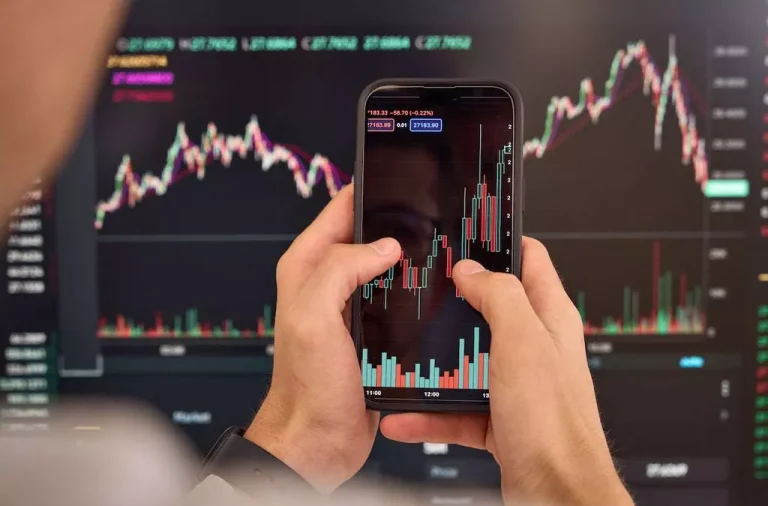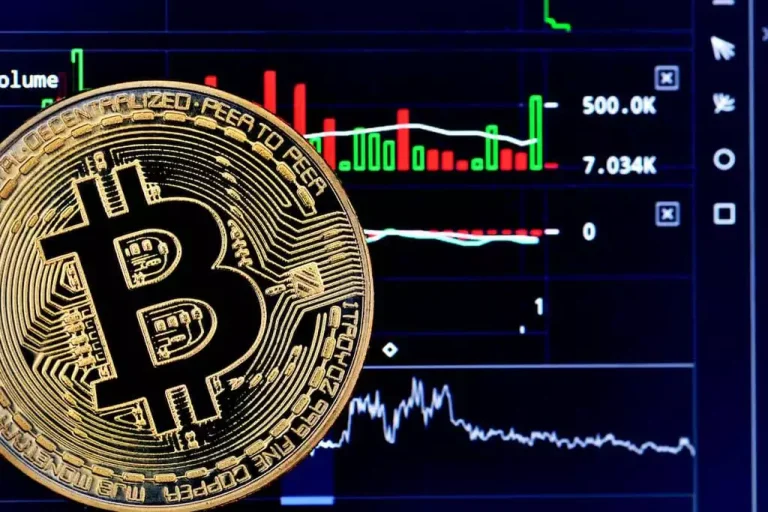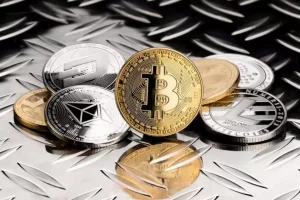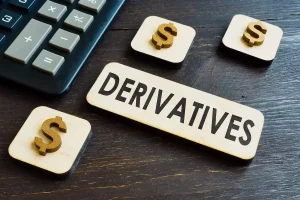Cryptocurrency exchanges suggest a comfortable way for users to add virtual assets to their portfolios. However, as with classic marketplaces, dealing on the exchange is not free. Like brokerage accounts, cryptocurrency platforms connect asset owners and clients. Although such exchanges provide straightforward access to different assets and derivatives, they typically require service charges. Such commissions are commonly insignificant, but the cost of multiple deals can decrease your income. Let’s talk more about cryptocurrency exchange fees and whether there are digital assets without transaction commissions.
Understanding the Mechanism of Crypto Exchange Fees
Cryptocurrency regulations require that a fee be charged every time a user trades virtual assets, completes an operation, or invests in purchasing instruments related to crypto coins.
Depending on what services the marketplace provides, different fees are charged. Users can study the commission structure in each decentralized exchange «Commission Schedule» section.
When purchasing digital assets, an operation fee is usually charged between 0.05% and 0.25% of the transaction amount. Likewise, you must pay a crypto withdrawal commission to transfer your savings to another virtual wallet whenever you withdraw cryptocurrency. If you are an active market member participating in different categories of profitable investment projects, be prepared to pay an investment commission.
Crypto exchanges often run promotions to attract new users in decentralized finance (DeFi), so new members receive discounts on various fees. Users just starting can receive a sign-up bonus when trading on the market, which can partially or wholly offset their costs. Likewise, existing customers can receive generous discounts by selling more and moving up to various levels reserved for returning customers.


Turnkey Brokerage Solution For Your Business
Get the most profitable fully licensed fx/crypto brokerage software or ready-to-operate business in 48 hours. Best-in-class web & mobile trading platforms, sales-driven CRM, full integration with MT4/5, and 150+ payment providers.
Cryptocurrency Exchange Fee Schedules
Most likely, there are no several crypto exchanges with similar fee schedules, so market participants must study carefully all the rules of the chosen trading markets to get accurate recommendations. Although commission rates vary between portals, most exchanges adopt a multi-tier «maker-taker» evaluation algorithm. In such a system, traders must pay a percentage of each purchase and sale transaction. The size of the commission depends on several criteria:
- Average commercial volume: Generally, the more capital users spend, the less they pay in cryptocurrency exchange fees. Most marketplaces that choose the maker-taker algorithm evaluate a person’s commercial activity by the volume of his commercial activity in fiat currency (most often the euro or US dollar) over the past month.
- Order category: Many trading portals suggest lower commissions for users who utilize limit orders instead of market deals. A limit order means an industry participant is willing to purchase or sell crypto coins at a pre-agreed cost(e.g., a limit buy of Bitcoin at $40,000). At the same time, a market order is utilized if a participant plans to open a transaction at the actual market cost. The fact is that limited orders provide liquidity to the marketplace; such members are called «makers» (and those who use these market deals are «takers»). Trading platforms encourage people to act as market makers by suggesting more profitable conditions.
If you trade on Coinbase with less than $10,000 in transaction volume, the maker and taker commissions are 0.6% and 0.4%, respectively. At the same time, if the transaction amount ranges from $100,000 to $1,000,000, the taker and maker payments are 0.2% and 0.1%, respectively.
Some marketplaces may still charge a commission per operation, but for the most part, they have switched to a combined algorithm like the one Coinbase has implemented. It means small and rare deals on a crypto portal are not profitable unless you simply plan to purchase virtual assets. In this situation, most exchanges require a spot trading fee to buy and hold crypto coins.

Types of Crypto Fees
Crypto exchanges generate revenue by charging a fee for every deal on their portal. They typically require a deposit commission and almost always require a withdrawal commission. It provides trading platforms with uninterrupted operations and a stable flow of capital since they are not affected by regular changes in the value of cyber money. Let’s look at the most famous categories of crypto fees.
Maker and taker commission
As we know, most exchanges implement a «maker-taker» fee model instead of requiring a fixed percentage to complete a transaction. Maker and taker commission is your charge for opening and closing positions.
Simply put, you pay a maker fee for a limit order and a taker commission for a market order. Typically, the maker’s charge is less than the taker’s because you become a liquidity provider when you place a limit order. Since these trades are not executed instantly, they are stored in the order book and positively impact liquidity.
Taker fees are higher than the maker commission. You pay this for all market orders. Since such a trade is executed instantly without being stored in the order book, it negatively affects liquidity.
Gas fee
This commission is associated with performing operations on the Ethereum blockchain system. While other blockchain structures call this a «transaction fee» or «miner commission», people who work with Ethereum pay a «gas fee.»
Most actions in the Ethereum system require gas. If you transfer ETH to another wallet, you must pay a gas commission since this activity involves the Ethereum blockchain.
Performing transactions with ETH does not involve significant spending, and you will not have to pay much if the system is not overloaded. However, this may be prohibitively expensive if you plan to create NFTs and interact with smart contracts on the Ethereum blockchain. In this case, the gas charge is higher than that of competitors.
Withdrawal and deposit fees
If you buy crypto coins on an exchange, borrow them from a lending portal, or build a crypto portfolio on any other platform, you may eventually want to withdraw them. Some people are sure that withdrawing their savings is free, but this opinion is wrong. Most marketplaces, e.g., Gate.io, CEX.io, require a fee for withdrawing digital assets; the size of this commission depends on the category of virtual assets.
Deposit fees, on the other hand, are less common, but you may also encounter them. This means some portals require a charge for depositing cyber cash into the accounts you open with them, although the commission size will vary depending on the selected deposit category.
Staking fee
Many marketplaces offer staking as a method of generating passive revenue. Just like with a standard savings account, you can stake your digital assets or withdraw them at any time, although in some situations, you will have to pledge your coin for a certain period before withdrawing it.
The popularity of staking is increasing as it often offers higher returns than classical financial institutions. You can place different stablecoins on the exchange and receive stable profits without the risks connected with the constant fluctuation of the value of cyber cash. A marketplace will often require a minimum percentage of your trade, known as a staking fee.
Crypto without Transaction Fees
Many users just planning to enter the cryptocurrency network wonder whether there are cryptocurrencies without transaction commissions.
We researched and found no cryptocurrencies with zero transaction fees, with a few exceptions (e.g., NANO coins). But many digital assets offer a minimum commission for the operation, practically none.
A good example would be IOTA. These crypto coins have one of the lowest fees for purchasing or trading, which will not affect your financial situation. Another popular solution is Cardano; although the commissions are higher than IOTA, they are still negligible compared to other cryptocurrencies.
If you plan to trade virtual assets independently without additional crypto exchange fees, this topic requires constant research and industry know-how. New cryptocurrency products are emerging daily, many citing minimum transaction commissions as one of their competitive advantages.
Additionally, if you are researching which crypto coins offer a minimum commission to save when performing commercial transactions or sending them, remember that other factors will affect your costs. You should find a digital asset exchange portal with a small charge and time your trades correctly to choose a moment when the system is not overloaded.
Before carrying out any transaction on your chosen portal, you must familiarize yourself with the exchange’s commissions in advance. Doing your research will save you from paying large sums and allow you to find a reliable platform that charges minimal cryptocurrency exchange fees for its services.






